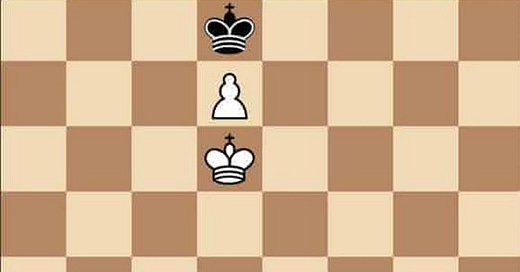I have yet again reached stalemate with a number of writings, and here we are, nearing the end of October.
I somehow ended up talking about leaps of faith with a neuroscientist I interviewed yesterday—in this case, the leap was from the bare facts of the physical to the interpretations we impose on what we observe.
The Other Minds Problem, in some sense, is solved by such a leap. The dynamics and the postulate of collapse in quantum mechanics—about what happens to the state vector of a physical system when that system gets measured—seem inconsistent and force us into interpretation.
Jacobi took his leap, a refusal of demonstrative philosophy in response to Spinoza, on the immediate fact of his own free will. He couldn’t but believe that he was a being capable of choosing his actions.
I’ve rehearsed his story many times before, and it can feel like a clinical tale about how one ought to do metaphysics and where that leads, but there’s something radical and beautiful in it at the same time. There’s a kind of fidelity to one’s inner knowledge, something that, lent enough trust, overpowers the greatest feats of the intellect.
It’s the same thing that Alyosha and Ivan showed, at the end of the day: Ivan’s critique of religion in “The Grand Inquisitor” was so incisive and well-constructed that his younger brother could do little to respond. But, at the end of the day, it is the faithful brother who experiences the novel’s greatest joy—the innocent, beautiful friendship of Ilyusha’s school friends.
I suppose optimism is, more often than not, a place only accessible if one is willing to jump. In a month where I feel I have little to say and that, perhaps, “this is all there is,” I may have to leap if I do not have the strength to walk.
In lieu of an ending: a “photo” of me “dressed as a shrimp at a techno-music festival”
consumed
this is the same Frankfurt Radio Symphony concert from last time but it’s just Tchaik!
I finally made it around to Byung-Chul Han’s The Burnout Society and found it interesting, but I wasn’t sure how necessary/correct a lot of the references were to the point. idk
currently rereading Demons and forgot how funny this thing was
Proust’s essay “Contre Saint-Beuve” was an interesting follow up to the ~art~ discourse last month (as was Sontag’s “Against Interpretation,” in a different way).
I thought this bit from Carlyle that Proust quotes interesting: “An artist [“is sent hither specifically that he may discern for himself, and make manifest to us, this same Divine Idea which lies at the bottom of all Appearance,”] till in the end he only looks on the world as ‘affording an illusion to describe.’”
Proust’s criticism of Saint-Beuve’s method might imply that the artist-as-artist is almost a wholly different person from that artist as they go about daily life. And yet, I and many others find ourselves fascinated with the lives of great artists. How much can we learn about their “inner lives” from the biographical details. Ludwig Wittgenstein once, late at night, found his brother Paul feverishly practicing a work he had composed himself—Paul barely noticed Ludwig’s presence. It was, for Ludwig, a stark example of someone possessed by genius—just as a “demon” may have possessed Nikolai Vsevolodovich when he tugged Pavel Pavlovich by the nose, so too might Paul’s genius have been something that both was and was not Paul.
I am annoyed at Proust’s flagrant abuse of em dashes.
For Argument’s Sake (thanks to Jasmine Sun for sharing this one)
I have not been as organized about dumping reads this month—for another time





Into Proust, huh? Have you thought much about free indirect discourse as a mode of mind reading? https://scholar.google.com/scholar?hl=en&as_sdt=0%2C36&q=free+indirect+discourse&btnG=#d=gs_qabs&t=1698023124100&u=%23p%3DMilL_Gmq-MoJ
Also check out a cognitive narratologist named Lisa Zunshine. She thinks about narrative as an exercise in other mind theorizing.
Finally, have you gotten into Knaugaard yet? The narration is not as rich as Proust, but the autofiction adds some interesting density and meta-qualities. The volumes are un-even in quality, but they offer deep immersion. I am pretty certain volume 1 will age well.
Cheers!